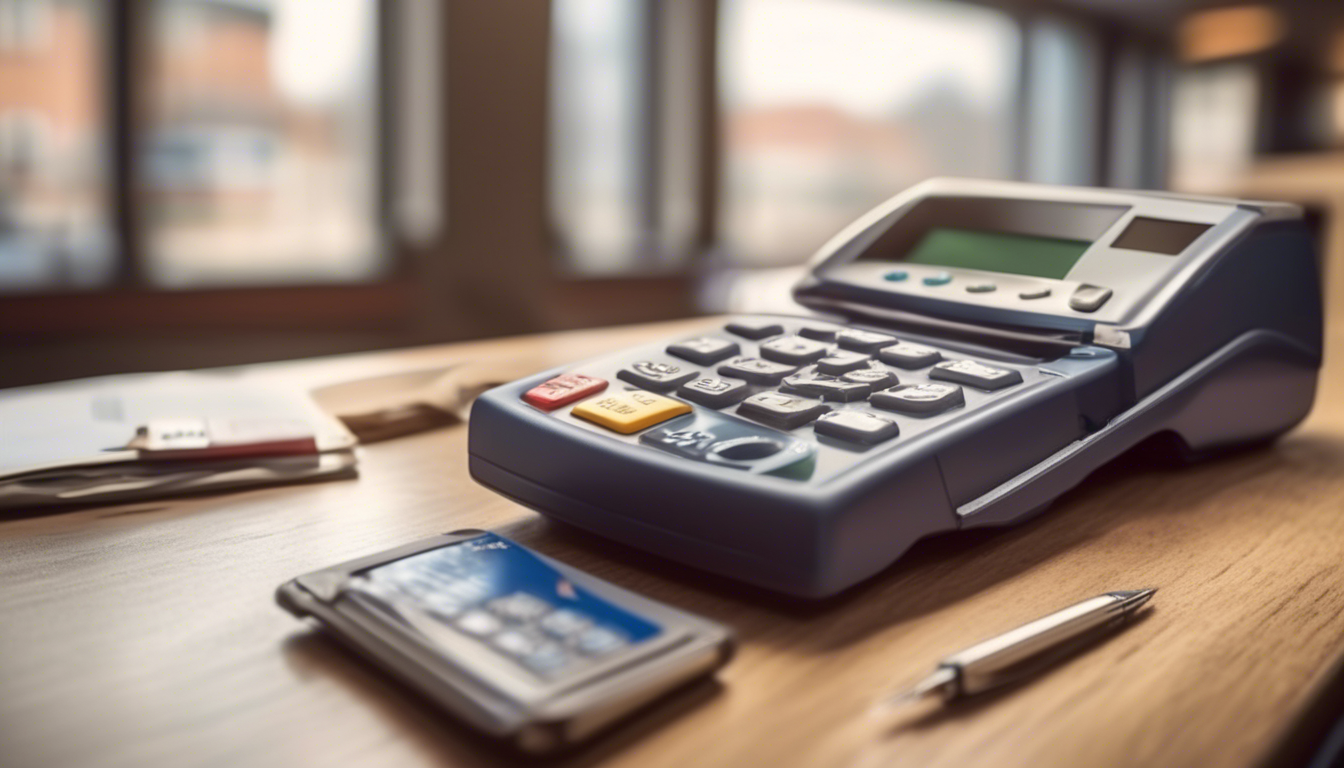Opening a Bank Account in the Netherlands: A Complete Guide for Expats

How to Open a Bank Account in the Netherlands as an Expat: Step-by-Step Guide
Moving to the Netherlands as an expat can be an exciting adventure, but one of the first practical steps you’ll need to take is opening a bank account. This guide will walk you through the process step-by-step, ensuring it’s as smooth as possible.
To open a bank account in the Netherlands, you will need to gather several documents. Make sure you have:
- Your valid passport or identity card
- Proof of residency in the Netherlands (like a rental contract or utility bill)
- Your BSN (Burger Service Number) which you receive after registering with the municipality
- Proof of income or employment (like a payslip or employment contract)
Once you have all of these documents ready, you can move on to the next steps.
Researching different banks is crucial. The Netherlands has a variety of banks, both large and small. Popular options include ABN AMRO, ING, and Rabobank. Each bank offers different account types and services, so take the time to compare:
- Account fees: Some banks offer free accounts, while others may charge monthly fees.
- ATM access: Check the availability of ATMs in your area.
- Mobile banking apps: Consider how tech-friendly each bank is.
- Customer service: Look for reviews on the level of service provided.
After choosing a bank, it’s time to visit a local branch. While some banks allow you to open an account online, many require an in-person visit. Here’s what to expect:
- Make an appointment: Some banks may require you to schedule an appointment. Check their website or call the branch.
- Bring your documents: Arrive at your appointment with all the required documentation.
- Complete the application: The bank representative will guide you through the application. Be sure to ask questions if something isn’t clear.
Once your application is submitted, it usually doesn’t take long for the bank to process it. In some cases, you might receive your account number and initial banking details on the spot. However, the physical debit card could take a few days to weeks to arrive by post.
After opening your bank account, you should familiarize yourself with basic banking terms in Dutch, as this can help you during your banking experience. Here’s a quick list of essential terms:
- Bankrekening – Bank account
- Betaalkaart – Debit card
- PIN-code – PIN code
- Overboeking – Transfer
Now that you have your account, it’s time to explore your online banking options. Most banks in the Netherlands offer robust online banking platforms and smartphone apps, making it convenient to manage your finances on the go.
As you start using your new bank account, keep in mind that the Dutch banking system may differ from what you’re used to. Here are a few tips to help you navigate:
- Keep track of fees: Many banks charge fees for certain transactions. Monitor your account regularly to avoid unexpected costs.
- Explore automatic payments: Setting up direct debits for rent and utilities can simplify your bill paying process.
- Understand international fees: If you plan to send money abroad, ask your bank about transfer fees and exchange rates, as these can vary significantly.
In addition, consider using a credit card. While debit cards are widely used, having a credit card can benefit you for larger purchases and building credit history. Research options that suit expats and check if they have a no-foreign transaction-fee policy.
Opening a bank account in the Netherlands as an expat may seem daunting, but with the right knowledge and preparation, you can navigate the process efficiently. Remember to be patient, as adjusting to a new banking system takes time. However, soon you’ll feel confident managing your finances in your new home!
Key Documentation Required for Expats Opening a Bank Account in the Netherlands
Opening a bank account in the Netherlands as an expat requires specific documentation. Understanding what you need will make the process smoother and quicker. Here’s a list of key documents you should gather before visiting the bank.
Valid Identification
The first thing you’ll need is a valid form of identification. Most banks in the Netherlands accept:
- Passport
- European Union (EU) national identity card
- Residence permit (if applicable)
Your identification must be current and not expired. The banks need to verify your identity, and having the right documents ready can save you time.
Proof of Residence
To open a bank account, you must show proof of where you live in the Netherlands. This could be done with:
- A rental contract
- A recent utility bill (like electricity or water)
- A bank statement or any official document that clearly shows your address
This document needs to include your name and address. The bank uses this to verify that you live at the specified location.
BSN Number
Your Burgerservicenummer (BSN) is a crucial piece of information. This is a unique personal identification number assigned to you upon registering with the Dutch authorities.
To obtain your BSN, you typically visit the local municipality office (gemeente) with your identification and proof of residence. Make sure to keep your BSN handy when opening a bank account, as most banks require it for identification purposes.
Employment and Income Verification
Some banks may ask for proof of income or employment. This can include:
- Your employment contract
- Recent pay slips
- A letter from your employer confirming your employment status
This documentation isn’t always essential, but having it ready can be helpful, especially if you’re opening a more specialized account.
Initial Deposit
Most banks require an initial deposit to activate your new account. This amount can vary depending on the type of account you choose. It’s advisable to check with the bank beforehand regarding the minimum deposit requirements and the accepted payment methods.
Additional Documents if Self-Employed
If you are self-employed, the documentation requirements may differ. You may be asked to provide:
- Your company registration documents
- Recent tax returns or financial statements
- Invoices or contracts from current clients
Being prepared with these documents can facilitate a smoother account opening process for self-employed individuals.
Bank-Specific Requirements
Each bank in the Netherlands may have its unique set of requirements or forms to fill out. It’s wise to visit the bank’s website or contact their customer service before heading to the branch. Check their list of required documents as well as the available account types, ensuring you have tailored your preparation to their specifications.
Setting Up an Appointment
Some banks prefer you to make an appointment before visiting. This can help reduce waiting times and ensure you have access to staff who are equipped to assist expats. You can usually make an appointment online or by calling the bank directly.
Gathering all necessary documents is crucial when opening a bank account in the Netherlands as an expat. Valid identification, proof of residence, a BSN number, and associated documents will facilitate a smoother process. Taking the time to prepare ahead of your visit will make your banking experience more enjoyable and less stressful.
Understanding Different Types of Bank Accounts Available for Expats
As an expat in the Netherlands, navigating the banking system can be challenging, especially with the variety of bank accounts available. Each type suits different financial needs and lifestyles, making it essential to understand which account aligns best with your requirements. Below, we discuss the various types of bank accounts, highlighting their features, benefits, and suitable user profiles.
Current Accounts
Current accounts, or giro accounts, are the most common type of bank account in the Netherlands. They are primarily used for everyday transactions, such as receiving salaries, paying bills, and making purchases. Generally, these accounts offer:
- Easy Access: Withdraw funds via ATMs or make purchases with a debit card.
- No Limits on Transactions: Conduct as many transactions as you need without additional fees.
- Online Banking: Manage your finances through a user-friendly online platform or mobile app.
This account is ideal for expats who want a straightforward way to manage their day-to-day finances.
Savings Accounts
If you’re looking to save money while earning interest, a savings account might be the perfect fit. These accounts are designed to hold your surplus funds securely while providing interest returns over time. Here are some features:
- Higher Interest Rates: Typically offer better interest rates compared to current accounts.
- Limited Withdrawals: Some may restrict the number of withdrawals per year.
- Easy Transfers: Transfer funds to and from your current account with ease.
Savings accounts are suitable for expats who wish to set aside money for future needs, like emergencies or travel plans.
Joint Accounts
If you’re living with a partner or spouse, a joint account can facilitate shared financial responsibilities. A joint account is held in the names of two or more individuals, allowing for shared deposits and withdrawals. Key aspects include:
- Shared Financial Management: Both account holders can access and manage funds easily.
- Budgeting Made Easy: Track household expenses together in one place.
- Transparent Finances: Both partners have visibility into the account, promoting financial honesty.
This account type is great for expats looking to manage joint expenses seamlessly.
Business Accounts
For entrepreneurial expats starting a business, a dedicated business account is essential. This account streamlines your accounting and enhances your professional image. Features to consider include:
- Expense Management: Keeps personal and business finances separate for clearer insights.
- Professional Services: Often offers services tailored for businesses, such as invoicing tools.
- Access to Credit: Easier access to loans and credit lines as a business account holder.
A business account is best for expats running their own enterprises or freelancers operating as sole proprietors.
Specific Needs Accounts
Some banks also offer specialized accounts tailored to specific needs, such as student accounts or expat packages. These types of accounts typically include unique features and benefits tailored to the user group:
- Student Accounts: Often provide lower fees and higher interest rates with minimal requirements.
- Expat Packages: Designed with expats in mind, these accounts may offer multilingual support and additional services relevant to international residents.
Such accounts cater to individuals with specific circumstances, making financial management smoother.
In choosing the right type of bank account, consider your lifestyle, financial goals, and how you plan to manage your money while living in the Netherlands. Each account offers distinct advantages, and selecting one that aligns with your needs can simplify your banking experience significantly. As you adapt to your new home, understanding the options available is crucial for effective financial planning.
Tips for Choosing the Right Bank in the Netherlands for Your Needs
Choosing the right bank in the Netherlands is crucial for expats looking to settle down comfortably. With a multitude of banks offering various services, it can feel overwhelming. Here are some tips to simplify your decision-making process, ensuring you find a bank that meets your personal and financial needs.
Understand Your Banking Needs
Before selecting a bank, take a moment to reflect on what services you need. Consider the following:
- Account Types: Are you looking for a basic current account, savings account, or perhaps a business account?
- Transaction Frequency: Do you plan to make frequent local or international transactions?
- Online Banking: Is it important for you to have a user-friendly online banking platform?
Research Different Banks
Once you’ve identified your banking needs, start researching different banks. Some popular options in the Netherlands include:
- ING
- Rabobank
- ABN AMRO
- BNP Paribas
Each bank has its own features. Make comparisons based on services offered, fees, and customer reviews. Don’t hesitate to explore expat forums to gain insights from others’ experiences.
Check Fees and Charges
Understanding the fees associated with the account you are considering is vital. Some fees to look out for include:
- Monthly Maintenance Fees: Some banks charge a monthly fee for maintaining your account.
- ATM Fees: Check if the bank has a large network of ATMs and what fees apply for withdrawals.
- International Transaction Fees: If you plan to make transfers abroad, inquire about the associated fees.
Having clarity on fees can help you avoid unnecessary costs down the line.
Evaluate Customer Service
Good customer service can make all the difference, especially if you encounter banking issues. Here are some aspects to assess:
- Availability: Does the bank offer support in English, and are they available during hours that are convenient for you?
- Accessibility: Evaluate their branch locations and whether online support meets your needs.
- Response Time: Look for reviews regarding their response time for inquiries or complaints.
Consider Location and Accessibility
Your bank’s physical location can significantly impact your banking experience. If you prefer face-to-face interactions, a bank with branches close to your home or workplace may be essential. Conversely, if you find digital banking sufficient, prioritize banks with solid online services.
Look for Additional Features
As you narrow down your options, consider any additional features that could enhance your banking experience:
- Mobile Banking App: A good app can make banking tasks easier, allowing you to transfer money, check your balance, and manage your account on the go.
- Customer Rewards: Some banks offer loyalty programs or rewards for using their services, which can add value to your account.
- Investment Services: If you’re looking to invest, check if the bank provides investment services or financial advice.
Seek Recommendations
Tap into your network. Ask fellow expats or locals which banks they recommend. Personal recommendations can be incredibly valuable as they come from people with firsthand experience in the local banking environment.
Read Reviews Online
Take some time to read online reviews for the banks you are considering. Websites focused on bank ratings and reviews can provide insights into the pros and cons of each provider. Use this information to make a well-informed decision.
By focusing on these crucial aspects, you can choose the right bank that meets your unique needs as an expat in the Netherlands. Take your time, do your research, and you’ll find a banking solution that’s just right for you.
Common Challenges Expats Face When Opening a Bank Account and How to Overcome Them
Opening a bank account in a new country can be an exciting yet daunting task for expats. In the Netherlands, while you may find banks are generally welcoming, there are several common challenges you might face. Understanding these hurdles can make your banking experience smoother. Here are the key challenges and how you can successfully navigate them.
Language Barrier
Language can be one of the biggest obstacles when opening a bank account in the Netherlands. Although many Dutch people speak English, not all bank representatives are fluent. This can lead to misunderstandings or confusion about the account opening process.
To overcome this challenge:
- Research banks that offer English-speaking services. This way, you can communicate easily and get all your questions answered.
- Prepare essential phrases in Dutch that may help you during your visit. Simple greetings or phrases like “Ik wil een bankrekening openen” (I want to open a bank account) can go a long way.
Required Documentation
Another hurdle for expats is gathering the necessary documents. Each bank has its own set of documentation requirements, but there are common documents you will generally need:
- A valid passport or national identity card.
- Proof of residence, such as a rental agreement or utility bill.
- A BSN (Burgerservicenummer), which is a citizen service number unique to your residence in the Netherlands.
To make sure you have everything you need:
- Visit the bank’s official website beforehand to check their specific document requirements.
- Prepare copies of all documents to streamline the process.
Time Constraints
Opening a bank account in the Netherlands can sometimes be a time-consuming process. You may have to make several visits to the bank, which can be challenging if you have a busy schedule.
To manage your time effectively:
- Schedule an appointment in advance if the bank allows it. This will reduce waiting time and ensure you get dedicated attention.
- Choose a bank branch that is conveniently located near your residence or workplace to minimize travel time.
Understanding Account Types
Not all bank accounts are created equal, and selecting the right type of account can be confusing. In the Netherlands, you’ll find various account types, including current accounts, savings accounts, and shared accounts, each with its features.
To navigate this:
- Conduct research on different account types, including fees associated with maintaining each account.
- Ask the bank representative to explain the benefits and drawbacks of each type based on your needs.
Banking Fees and Charges
Some expats are surprised to learn about the various fees associated with bank accounts in the Netherlands. Monthly maintenance fees, transaction fees, and international transfer charges can add up.
To manage costs effectively:
- Compare different banks and their fee structures before opening an account. Look for fee-free options or those with lower charges.
- Ask the bank for a clear breakdown of all potential fees as part of the account agreement.
Accessing Online Banking
In today’s digital age, access to online banking is crucial for managing your finances. Some expats find it challenging to set up online banking services, especially if they are unfamiliar with the Dutch banking system.
To simplify online banking:
- Request assistance from the bank’s customer service during your account opening. They can guide you through setting up online access.
- Familiarize yourself with the bank’s online banking platform by checking demo versions or user guides on their website.
While opening a bank account in the Netherlands can come with challenges, being prepared and proactive can help you overcome them effectively. Understanding your needs and conducting thorough research can pave the way for a smoother banking experience. This will not only make it easier to navigate the banking landscape but also ensure you feel settled in your new home.
Conclusion
Opening a bank account in the Netherlands as an expat can initially seem daunting, but with the right information and steps, it can be a straightforward process. Start by following the step-by-step guide provided, which outlines everything from gathering your documents to visiting a bank. Make sure to prepare the key documentation—such as a valid passport, residence permit, proof of address, and a BSN (Citizen Service Number)—to ensure a smooth application.
It’s also essential to understand the different types of bank accounts available to you. Whether you need a basic checking account or one that offers additional features tailored to expats, knowing what’s out there will help you make an informed decision. When it comes to selecting a bank, consider factors like fees, convenience, customer service, and online banking options that suit your lifestyle.
As you navigate this process, be aware of common challenges that expats face, such as language barriers or differing banking regulations. By staying patient and prepared, you can overcome these obstacles easily. If you find yourself stuck, don’t hesitate to ask for help either from bank staff or fellow expats who have been through the same steps.
By arming yourself with the right knowledge and taking proactive steps, you can enjoy hassle-free banking in the Netherlands. With your new account, you’ll find managing your finances abroad becomes much easier, allowing you to focus more on enjoying your expat experience.





